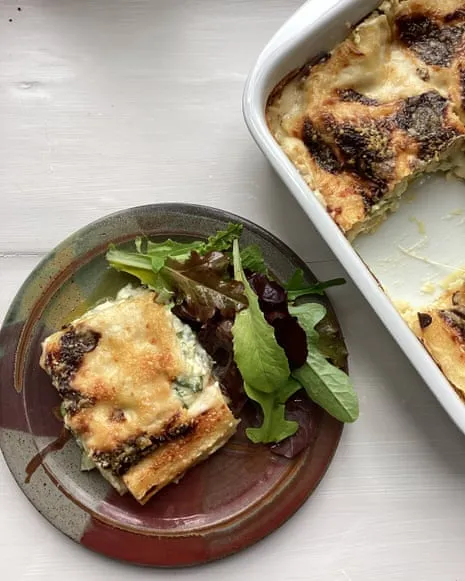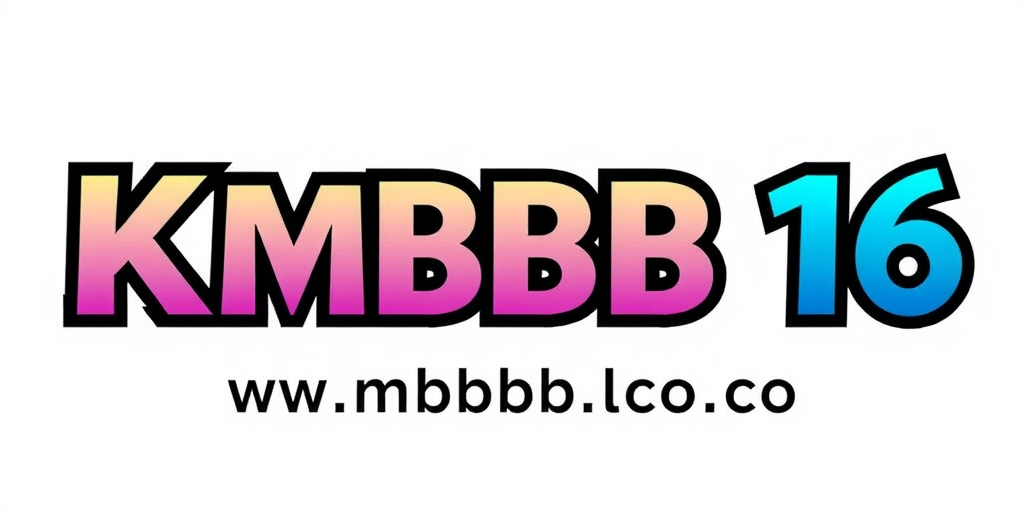Latest
Update

News
A Classic Creation for Layered Pasta with Courgette and Cheese Medley

Krystal Harper
18 Sep 2025

News
Donald Trump Hails Kimmel Suspension as Networks Swap Broadcast with Conservative Activist Tribute
By Krystal Harper
• 18 Sep 2025

News
The Iconic Shoemaker Unveils a Heritage Center to Celebrate Two Hundred Years of History
By Krystal Harper
• 18 Sep 2025
Featured Story

News
Black Rabbit Critique: A Grim Drama Which Fails to Make Audiences Care

Krystal Harper
18 Sep 2025
Today's Top Highlights


The President Intends to Designate Antifa as a Primary Extremist Entity
 By Krystal Harper
•
18 Sep 2025
By Krystal Harper
•
18 Sep 2025

Praying for a Travel Permit Before Tragedy: Gaza’s Injured Children Trapped in Uncertainty
 By Krystal Harper
•
18 Sep 2025
By Krystal Harper
•
18 Sep 2025

Could the Stars At Last Coming Together for a ‘Renewed Era’ of Nuclear Energy?
 By Krystal Harper
•
18 Sep 2025
By Krystal Harper
•
18 Sep 2025

US Immigration Judge Orders Deportation of Pro-Palestinian Leader Due to Misrepresented Information on Green Card Form
 By Krystal Harper
•
18 Sep 2025
By Krystal Harper
•
18 Sep 2025

Paris Should Have Acknowledged Palestine as a State Long Before: The Cynic Asks: What Prompted This Move?
 By Krystal Harper
•
18 Sep 2025
By Krystal Harper
•
18 Sep 2025

What Exactly Would Jimmy Kimmel State Regarding Charlie Kirk’s Killing?
 By Krystal Harper
•
18 Sep 2025
By Krystal Harper
•
18 Sep 2025

‘It Was a Bad Dream – But I Never Woke Up’: What It’s Like Saying Goodbye to Your Closest Companion.
 By Krystal Harper
•
18 Sep 2025
By Krystal Harper
•
18 Sep 2025


The nation Preparing for Major Strike Action Amid Deepening Governmental Crisis
 By Krystal Harper
•
18 Sep 2025
By Krystal Harper
•
18 Sep 2025

Remains Found in Car Registered to Artist D4vd Identified as Disappeared Teen
 By Krystal Harper
•
18 Sep 2025
By Krystal Harper
•
18 Sep 2025

High-profile Church Leader Denies Gift-giving Claims Involving Ex-South Korea President's Wife
 By Krystal Harper
•
18 Sep 2025
By Krystal Harper
•
18 Sep 2025
September 2025 Blog Roll
- 789BET
- 789BET
- MM88
- 5MB
- https://mm88.agency/
- mm88
- new88blog.org
- https://23win.finance/
- daduemas88 link
- buntogel
- UFA656
- https://mm88.it.com/
- https://ku88.click/
- https://fm88.cash/
- https://da88.co.im/
- https://9bet.bike/
- https://vb88.bz/
- PH222
- https://kkwin.diy/
- okfun
- VMAX
- trang chủ u888
- Kubet
- slot
- sunwin
- sunwin
- online casinos
- SODO66
- 66 Club
- 789P BET
- NOHU90
- HZ88 BET
- HM88 BET
- AF88 BET
- 888NEW BET
- EU9 BET
- 89BET CASINO
- 68WIN BET
- https://Go99.is
- https://tv8889.net
- https://nohu90s.ink
- https://xn8800.com
- https://Go892.com
- https://go99.ca
- LODE88
- LU88
- NBET
- MAX88
- UK88
- xo88
- tx88
- https://heylink.me/mega888game/
- okwin
- 5mb
- EV88
- lode88
- https://789f.fan/
- best meme coins
- Nhà cái uy tín
- ku bet
- soi kèo bóng đá
- non gamstop casinos
- Top 10 casino's zonder CRUKS
- meilleur casino en ligne France
- nohu
- 79sodo
- gamstop
- online casino
- LC88
- GEM88
- Fb88
- w88
- w88
- situs toto
- https://32winz.com/
- MM88
- DU88
- https://5mb.icu/
- https://5mb.gg/
- https://5mb.io/
- https://5mb.es/
- casino online deutschland
- https://5mb.onl/
- https://78winni.net/
- loto188.fyi
- online slots
- iwin
- rikvip
- rikvip
- bk8
- bk8
- 8xbet
- gem88
- gem88
- oxbet.cafe
- https://32winz.org
- best online slots
- https://wwqq88.com/
- LUCK8
- kkwin
- Kuwin
- https://agenzona66.com/
- okwin
- tip88
- 9bet
- alo789
- km88
- https://kkwin.co.com/
- okwin
- SODO66
- best canadian online casino
- canada online casinos
- top online casinos in Canada
- best online casinos canada
- canadian online casinos
- TG88
- go8
- vuabet88
- E2BET
- E2BET
- E2BET
- canadian online casino
- New88
- New88
- https://q789win.vip/
- https://hm88.actor/
- https://88aa.golf/
- Sunwin
- https://gk88t2.com/
- https://fsbet.net/
- tx88
- da88
- lucky88
- SKY88
- luongsontv
- https://zona66.cam/
- Leo88
- casinos online
- https://luongsontv2.com/
- luongsontv
- xlbola login
- lương sơn tv
- luongsontv
- SODO66
- Top casinos
- ai88
- SODO
- RR88
- SODO
- LT88
- miso88
- 789win
- https://58win.watch/
- สล็อต168
- v9bet
- slot88 resmi
- Trang game giải trí
- 789F
- 789WIN
- 88bet
- dunia777
- slot gacor
- fun88
- 8KBet
- KUBET
- best sports betting sites
- dm win
- Toto Togel
- bola88 login
- mibet
- kangtoto
- jayaslot
- slot online terbesar
- https://23win.cab/
- http://88clblw.com/
August 2025 Blog Roll
- zenostogel
- Situs Slot
- RR88
- https://68xbet.net/
- BET88
- Citizenship-by-investment.net
- Kubet
- okwin
- văn khánh tv
- https://rr88.build/
- hi88
- mbak4d
- nohu90
- https://pg88vn.lat/
- bet88
- gk88
- slot gacor
- pg99
- gk88
- kutu4d
- MM88
- nhà cái kuwin
- Miso88
- 789club
- king88
- onbet
- 79king
- dinasti555
- bet88
- Situs togel
- bet88
- Nhà cái Tx88
- 69vnk6ai.com
- 9bet
- kí tự đặc biệt
- uus777
- 23win
- สล็อต168
- lxtoto
- kuwin
- nohu
- MM88
- kubet11
- poker88
- gk88 đăng nhập
- vin88
- ww 88
- 13WIN
- https://kubet77.onl/
- MM88
- https://ax88.store/
- daman app
- indo gg
- luongsontv
- uu88
- GGWIN
- OK9
- link sigapbet
- E2BET
- xx88
- Kubet
- 23win
- papatogel register
- https://68winss.com/
- TIP88
- 88BET
- F168
- okwin
- XX88
- demo slot
- ปั้มยอดวิ
- Kubet
- casino en ligne France
- https://www.hj88-casino.com/
- i9bet
- xocdia88
- DEDITOTO
- 99ok
- https://xx88.art/
- miso88
- ufa289
- 33Win
- arena tempur slot
- hm88
- Bk8
- eslot
- https://www.addictologie.org/
- SV368
- u888
- สล็อตเว็บตรง
- bay789
- saobet
- XX88
- api66 slot
- uu88
- https://mm88.io/
- Fb88
- S666
- 搜狗输入法下载
- 789P
- hi88
- MM88
- kangjitu
- kèo nhà cái
- bandar slot online
- TG88
- xin88
- uu88
- link Aloha4d
- 789p
- kointoto
- https://58win79.com/
- https://33wincom.org/
- 789bet đăng nhập
- bet88
- pg88
- 33win
- xo88
- xoso66
- bandar togel
- https://xx88.xyz/
- LUCK8
- doyan5
- https://vnae2bet.games/
- s1288poker
- rupiahtoto
- UAE Casino Sites
- BET88
- KJC
- u888
- https://kreativekustoms.net/
- magnumtogel
- best sports betting sites singapore
- 8XBET
- king88
- https://sv3688.live/
- 78win
- MM88
- ai88bet
- https://kjc.website/
- dentoto
- τα καλυτερα ξενα online casino
- KJC
- zbahis
- MM88
- Read more
- SV368
- KUWIN
- QQ88
- https://king88.international/
- Ligahokie22
- https://9ae888.com/
- mustikaslot
- u888
- NO HU
- game GK88
- Thabet
- 69vn
- OK9
- 32WIN
- Slot Gacor
- QQ88
- 99win
- mbak4d
- slot gacor
- KKWIN
- slot
- lode88
- https://mm88.space/
- panutantoto daftar
- j88
- kuwin
- slot gacor
- đăng nhập m88
- https://mm88.tech/
- Debet
- online kazina
- Toronto tech scene
- TK88
- 98WIN
- mm88
- win55
- 789win
- KING88
- koinvegas daftar
- whatsapp网页版
- link mitosbola
- alo789
- kutu4d
- bong88
- QQ88
- casino utan spelpaus
- https://nftp.muet.edu.pk/
- rr88
- xx88 casino
- f8bet
- https://king88.giving/
- doyan5
- nhà cái 32win
- OK9
- SV368
- https://bet88vn.in/
- https://xo88casinox.com/
- https://789wint2.com/
- Link Slotbom77
- OK9
- XX88
- F168VIP
- MM88
- https://www.emprendeimperio.com/
- rr88
- okwin
- 789bet
- VankhanhTV
- 32win
- slotsgg
- F168
- SV368
- ABC8
- Online Casino België
- https://okwin.study/
- u888
- pg88 trang chủ
- 69vn
- 23win
- AZ888
- ALO789
- https://e-aula.anestesiar.org/
- Bkkwin
- teratai888
- Keo nha Cai
- BK8
- ALO789
- xx88.aisa
- ai meta hack
- FB88
- xoso66
- 78WIN
- 79king
- saldowd
- mmoo
- King88
- dewacash login
- sunwin
- 32win
- XX88
- okking
- TK88
- https://32winse.com/
- Ok365
- 13win
- kingbet188
- toto macau 4d
- w88
- mdgwin
- nhà cái uy tín
- Nhà Cái Uy Tín
- mahkota555
- dewahub
- u888
- OKWINTV
- 33win
- BET88
- hamtoto
- ww88
- pg99
- casino en ligne France légal
- ww88
- Hi88com
- slot
- xx88
- Nhà cái uy tín
- UU88
- 강남 가라오케
- upinslot
- u888
- Kuwin
- best online casinos canada
- kubet
- i9bet
- https://xx88.us.com/
- klikfifa
- 카지노코리아
- hi88o
- trực tiếp đá gà thomo
- 188bet
- Gofun娛樂城
- f8bet
- betvnd
- luongsontv
- Tỷ lệ kèo
- https://32win.dev/
- bet88
- https://linklist.bio/goltogel
- Nohu90
- kubet
- Sawer4d
- casino utan spelpaus
- tx88
- OK9
- U888
- 789betviet com
- https://www.xx88.church/
- jun88
- slot88
- casino utan spelpaus
- slot gacor
- 32win
- romabet giriş
- KUBET
- https://32win.golf/
- 69VN
- https://nohu.br.com/
- สล็อต168
- nhà cái uy tín
- td88
- J88
- jkbet88
- kubet pizza
- SHBET
- Slot 5000
- https://km88.monster/
- hi88
- mainaku
- https://33win.bingo/
- J88
- 89bet
- ufabet
- go8
- ok9
- F8BET
- ufabet เว็บตรง
- 6FF
- aq999win
- xổ số shbet
- link Shbet
- Kubet
- https://8day11.ink/
- hi88g
- ebikes
- best instant withdrawal crypto casino
- uu88
- sadewa77
- 58WIN
- aslotre
- candu123
- slot gacor
- https://vnd77-viet.com/
- OKWIN
- api88 slot
- BET88
- PG SLOT
- 9bet
- 18win
- mm88
- 789win
- https://8kbets.best/
- https://pg88vn.my/
- https://qq88z.net/
- luongsontv
- https://five88.monster/
- xx 88
- W88
- https://u8888one.baby/
- Truyenqq
- kèo nhà cái
- bj88
- v9bet
- 8DAY
- MU88
- da88
- kuwin
- PG99
- 79king
- ww88
- Jajantogel
- 789win
- https://dola789.events/
- five88
- australian online casinos
- Hello88
- 100vip
- J88
- ae888
- 먹튀폴리스
- du88
- U888
- J88
- dewascore
July 2025 Blog Roll
- slot online
- wps官网
- 69vn
- XX88
- Lu88
- u888
- slot okesultan
- du88
- https://33win.clothing/
- 79king
- telegram 下载
- japritoto login alternatif
- domtoto
- สล็อต 789
- แทงหวยออนไลน์
- 58win
- https://sossoftware.co.uk/
- Operabola
- GA888
- 77WIN
- abc8
- 88CLB
- https://oxbet.channel/
- over under parlay
- https:vip52.io/
- SLOT GACOR
- https://shbet63.com/
- mpo777
- kèo nhà cái
- rr88
- https://789win.market/
- Kubet
- https://fb88.nexus/
- https://www.thecitycentre.london/
- dbltoto
- 88clb
- skor88
- Nhà cái Ae888
- lapak303 link alternatif
- VMAX
- 58WIN
- https://f8bet-vn.com/
- kèo nhà cái
- https://k8cc.energy/
- trang chủ qq88
- BIG88
- https://take2bet.com/
- XX88
- 789win
- ABC8
- Nohu
- 123win
- uu888
- https://sunwinners.com/
- 23bet
- j88
- dominobet
- TD88
- HI88
- mantap 555
- hb88
- GK88
- DU88
- totobet 805
- 789bet
- 79KING
- ALO789
- 23WIN
- ok365
- ufabet
- https://28betjp.com/
- สล็อต888
- jagoanspin
- https://88clbbb.com/
- rsg試玩
- SV88
- https://789win1.live/
- cemeslot
- 8kbet
- slot gacor
- MB66
- QQ88
- dewabet
- Bandar Togel
- vsbet
- 69VN
- 86bet
- 789win
- V9bet
- 7meter
- 32win
- UFANANCE
- https://shbet45.com/
- 58win
- dwvgaming
- https://23winvn.co/
- Bet88
- Kubet
- best VPN casino
- 68gamebai
- https://8kbeta.com/
- binjaitoto
- platform perdagangan kripto
- https://33winf.fun/
- pengeluaran macau
- B52 CLUB
- DA88
- BET88
- sabung ayam online
- Bet88
- สล็อตเว็บตรง
- https://mm88.build/
- gudangbet88
- gacor88
- rantau4d
- 69VN
- https://k8cc.uno/
- สล็อต
- เว็บพนันออนไลน์
- TX88
- ngân hàng nông thôn
- แทงหวย
- link tigerasia88
- cpc2888
- abc8
- XX88
- 58WIN
- U888
- j88
- online casino uden rofus
- QQ88 COM
- hi88
- slot
- slot gacor 777
- slot gacor
- beste online casino zonder cruks
- สล็อตแตกง่าย
- Cwin
- bigdewa
- TD88
- 789win
- https://nohu.locker/
- 블랙툰
- tdtc
- OK365
- doyan5
- หวยออนไลน์
- 33win
- 9BET
- New88
- slot777
- bj88
- uus777
- betclub89
- ok9
- SITUSWIN
- link Aloha4d
- ww88
- https://23wincom.tv/
- XX88
- King88
- 188BET
- Tototogel
- dinasti555
- 789p
- slot online
- onward Ticket
- diuwin game
- uu88
- https://www.adswindentoto.com/
- ww88
- https://bet68gamebai.com/
- オンラインカジノ おすすめの紹介
- สล็อตเว็บตรง
- rusia777 link
- สล็อต 99
- gacorbet88
- situs slot gacor 2025
- slot scatter hitam
- 8kbet
- Lucky88
- luongsontv
- slot demo pragmatic
- Kubet
- bongx9.autos
- 789WIN
- https://bet88vn.london
- https://pg88vn.tokyo/
- https://bet88zb.com/
- Slot
- Demo Slot
- https://sip777.it.com/
- operabola
- OKKING
- 88vv
- da88
- Bo Togel
- shbet
- XX88
- penjualan senjata tajam
June 2025 Blog Roll
- rr88
- slot server jepang
- UU88
- fb88
- https://qq888.dev/
- BONG88
- 8kbet
- Jun88
- https://lucky8888.pro/
- slot gacor
- u888
- บาคาร่า
- BJ88
- E2BET
- slot gacor
- parisumut.org
- m88 login
- deluna188
- 9bet
- 13win
- layaktoto
- kuwin
- may88
- J88
- U888
- QQ88
- xin88
- LODE88
- LUCK8
- situs toto
- OK9
- https://789winok.com/
- abc8
- kentucky derby sportsbooks
- https://98win.media/
- 11bet
- Nohunet.com
- toto slot
- HB88
- 7m
- https://j88play.com/
- QQ88
- situs slot gacor
- slot
- https://vipwinzz.com/
- slot gacor
- u888
- kuwin
- w69
- airasiabet
- 33winn.center
- Rupiahtoto
- wingslots77
- Bet88
- AMARTOTO
- 23win
- uu88
- hesgoal tv
- Slot88
- bandar togel
- mega888.com.co
- cpc2888
- da88
- E2BET
- lucky88
- สล็อต
- u888
- 9bet
- Udangbet
- lucky88
- situs slot gacor
- kuwin
- kingjr99
- Truyenqq
- Katsu5
- QQ88
- lsm99
- deneme bonusu veren siteler
- sitoto daftar
- Ufabet
- https://69vn.schule/
- 69VN
- slot777
- SITUSWIN
- I9BET
- mpo slot
- creditcard casino
- 69VN
- ufabet เว็บหลัก
- nhà cái bk8
- QQ88
- New88
- remipoker daftar
- 69vn
- 69vn
- bitcoin casino Sverige
- https://79kingg.me/
- RR88
- lương sơn tv
- bet88
- 9bet
- bet88
- areaslots
- XX88
- nổ hũ
- bong88
- bet88 com
- https://ax88xx.com/
- SV388
- https://k8cc.faith/
- 33WIN
- cipung138
- mahkota555
- 58WIN
- 13win
- 32win
- https://bancadoithuong.moe/
- BJ88
- pg88
- https://j88.ventures/
- https://keonhacaitv.net
- ok365
- 789P
- toto slot
- https://nhacaiuytin.tips/
- kartupoker
- hb88
- best casino apps
- SV 388
- bet88
- MB66
- casino en ligne France avec argent réel
- batik55
- totobet805
- randm tornado
- 99OK
- 789win
- SLOT888
- https://t8kbet5.com/
- link Aloha4d
- slot gacor
- สล็อต
- kubet88
- pg99
- Demo Slot PG
- SBOTOP
- Kubet
- 플러스카지노 도메인
- ww88
- 555win
- SLOT QRIS
- km88
- Thabet
- BJ88
- 23win
- qh88
- QQ88
- lucky88
- Neng4d
- nyalabet
- RR88
- https://pg99bz.com/
- situs togel
- nhà cái uy tín
- GA179
- สล็อต666
- Hi 88
- https://nhacaifo88.com/
- Nhà cái uy tín
- 8live
- 8XX
- 33win
- naga508
- slot88
- situs togel
- hi88
- one88
- Hit77
- Bet365
- cwin
- KUBET
- non gamstop casinos
- non gamstop casino
- e2bet-games.com
- offshore casinos
- QQ88
- slot gacor
- golbos
- trang chủ qq88
- สล็อตเว็บตรง
- garuda303
- mitra super scatter
- inatogel
- suncity
- สล็อตเว็บตรง
- BET88
- Fun88
Recent Posts
Sponsored News
 News
News
Families of the Air India accident victims sue aerospace companies Honeywell and Boeing
 By Krystal Harper
•
18 Sep 2025
By Krystal Harper
•
18 Sep 2025
 News
News
Meta Shows off Latest Digital Tech Glasses
 By Krystal Harper
•
18 Sep 2025
By Krystal Harper
•
18 Sep 2025
 News
News
Former TV Host Alan Jones Enters Not Guilty to Twenty-seven Charges
 By Krystal Harper
•
18 Sep 2025
By Krystal Harper
•
18 Sep 2025
 News
News
China's Monastic Commerce Under Examination as Scandals Rock Influential Religious Leaders
 By Krystal Harper
•
18 Sep 2025
By Krystal Harper
•
18 Sep 2025
 News
News
Europe-Funded Arms Shipments Begin Under ‘Purl’ Programme
 By Krystal Harper
•
18 Sep 2025
By Krystal Harper
•
18 Sep 2025
 News
News
Matchroom chairman Hearn Threatens Lawsuits Against Chris Eubank Jr Over ‘Sabotage’ Claims
 By Krystal Harper
•
18 Sep 2025
By Krystal Harper
•
18 Sep 2025
